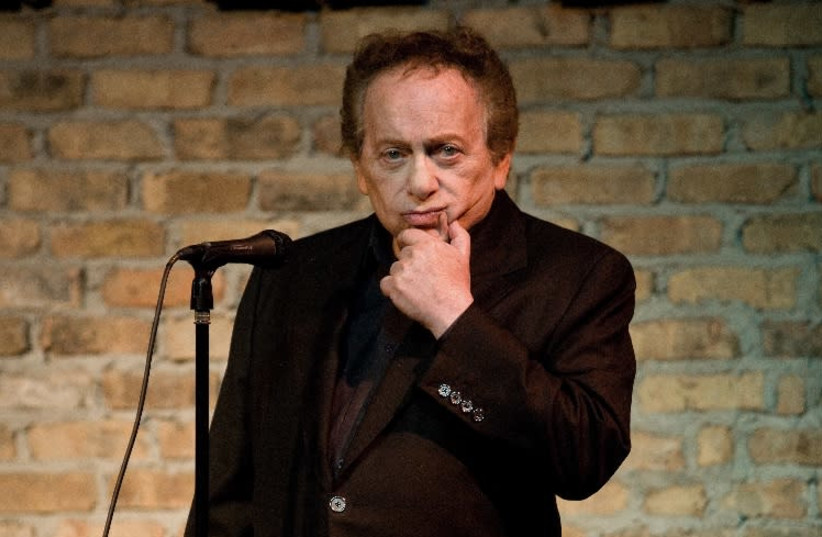What is humor? Is it a funny statement coming from the lips of a stand-up comic? Or is it something else? Can we say that there is specific Jewish or Israeli humor? If so, are they similar? And is Jewish the same as Yiddish?
Rabbi Google provided reams of material on Jewish humor. Familiar to my background are phrases like being hit in the kishkes or “guts” (meaning “below the belt”); or Burshet mir in boich (“My tummy is rumbling”), upon hearing stomach-churning news.
In French, petit juif (little Jew) is used to describe the “funny bone,” apparently from the time when most cloth merchants in France were Jewish, and would often hurt their arm on that spot while measuring fabric, presumably with their forearms.
Not only words, but delivery plays a part. Time magazine wrote of the late, great American Jewish comedian Jackie Mason that he spoke to audiences “with the Yiddish locutions of an immigrant who just completed a course in English. By mail.”
What is Jewish humor?
The renowned Rabbi Moshe Feinstein ordained Mason, who explained how he moved from being a rabbi to a comedian: “I started telling more and more jokes [in synagogue], and after a while, a lot of Gentiles would come to the congregation just to hear the sermons.”

Kernels of truth appealed to our sense of humor when Mason exclaimed: “Money is not important. Love is important. Fortunately, I love money.” As did Tevye in Scholem Aleichem’s Fiddler on the Roof who, while longing and praying to be a “rich man,” himself, satirized those who were: “When you’re rich, they think you really know!”
Tevye’s practical reflexion on life, “When a poor man eats a chicken, one of them has to be sick,” elicits a reluctant laugh.
Many Yiddish songs include humor while striking our heartstrings, often making hardship into a light-hearted experience. Oyfn Pripetshik or “On the Hearth” by M.M. Warshawsky (1848–1907) has a rabbi teaching children the Hebrew aleph-bet, sitting around what was probably the only warm spot in the home – the hearth. As a musical memory of pre-Holocaust Europe, it is still sung in many Jewish kindergartens. Similarly, the jolly song Yidl mitn fidl (“The little Jew with the Fiddle”), contains what could be seen as Jewish philosophy.
Life is a song
So no point being angry
Hey, Yidl, fiddle, shmiddle, hey
Life is just a joke
Neither songs nor jokes were the trade of French mime artist Marcel Marceau (Mangel) – who would have turned 100 on March 22. Among millions of others, he also entertained the at-least 70 Jewish children he helped smuggle out of Nazi-occupied France. Upon receiving a humanitarian award from the University of Michigan, he said he created his character Bip the Clown as a symbol of hope.
Combining mime and slapstick brilliantly were the Marx Brothers. Born in New York City, they were sons of Jewish immigrants from Germany and France. Their mother Minnie Schoenberg immigrated to NYC where she married Sam Marx in 1884. As their manager, she encouraged each son to devise a different persona, with Harpo playing totally dumb. Groucho and Chico were the other two renowned brothers, although there were five altogether. Gummo and Zeppo eventually abandoned comedy for business.
Groucho was a genius at delivering dead-pan cracks: “Marriage is a wonderful institution, but who wants to live in an institution?” Or the more visually slapstick: “One morning I shot an elephant in my pajamas. How he got into my pajamas, I’ll never know.”
What about Israeli humor? Countless others like myself who made aliyah from Western countries have asked this question. There are Hebrew expressions that are humorous because they don’t make sense in translation, such as “choleh alecha,” literally translated as “sick about you,” which sounds pretty unpleasant but means someone really likes you!
And then there’s Ephraim Kishon, the Hungarian-born Israeli satirist who made aliyah in 1949 after surviving the war’s horrors; and whose short stories (such as “Jewish Poker” and “Silver Frenzy”) translated from Hebrew into German and an additional 36 languages have had generations of readers laughing out loud in their armchairs.
With Jewish and Israeli humor, sentiment and tradition having a Yiddish springboard in common, let’s look at part of a Yiddish poem by comic genius Gene Wilder:
Yiddish was the secret code, therefore I don’t farshtaist,
A bisseleh maybe here and there, the rest has gone to waste.
Sadly when I hear it now, I only get the gist,
My Bubbe spoke it beautifully; but me, I am tsemisht.
And in the spirit of Tevye’s poor man and his chicken, Wilder writes: “They have nebbishes and nebechels and others without mazel; then, too, schmendriks and schlemiels, and let’s not forget schlemazel.”
Discovering on arrival in Israel the universal Hebrew use of the Yiddish terms: rugelach, beigelach and kneidlach (the suffix lach actually means “you” in Hebrew) connected me to cosmopolitan Jewish-Yiddish-Israeli history with its pain and its witticisms.
Yet let no one tell me “all has changed” in the new Israeli “me” generation of Bissli, Kefli, and Prili (the suffix li means “me”), this nosh is delectable too! ■
The writer, who hails from London and Sheffield, lives in Jerusalem.
